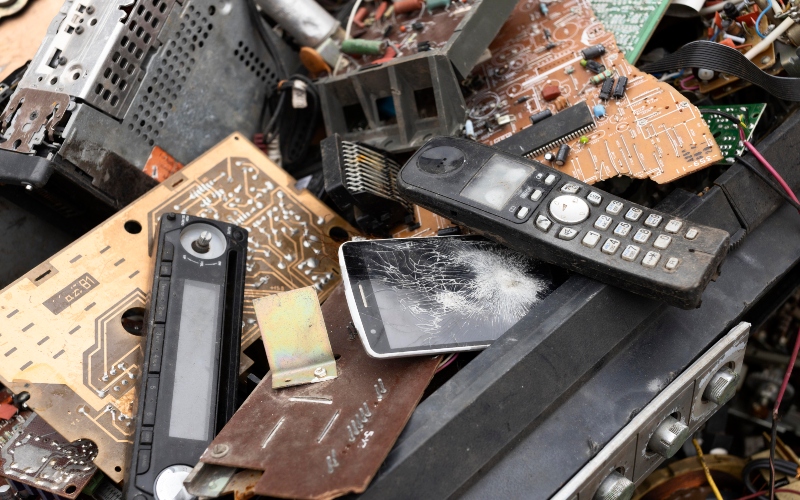New Bill proposes hefty fines, jail terms for careless disposal of electronics

The proposed legislation requires the construction of recycling centres on at least 30 acres, with a safety buffer of no less than five acres from residential or commercial properties.
Kenya is preparing to tackle the growing problem of electronic waste through a new law that will create large recycling facilities and introduce penalties for careless disposal.
The Electronic Equipment Disposal Recycling and Reuse Bill, 2025, seeks to ensure that discarded electronics are collected and processed safely, reducing environmental hazards and health risks associated with unmanaged e-waste.
More To Read
- Court certifies urgent petition over Sh17 billion waste contract awarded to Ghanaian firm
- Ecoball: How to make picking up litter fun and turn it into a game for kids
- Governor Sakaja vows to deregister private firms over illegal dumping of waste
- UN sounds alarm over Nairobi’s mounting garbage crisis
- Unseen and unprotected: The hidden workforce battling Kenya’s waste crisis
- The recycling dilemma: Most plastic still ends up as waste
The proposed legislation requires the construction of recycling centres on at least 30 acres, with a safety buffer of no less than five acres from residential or commercial properties.
Individuals and companies who ignore designated collection points could face fines of Sh20,000 or imprisonment for up to six months.
The government hopes these measures will stop the current practice of scattered dumping, which has become a major concern for communities and local authorities.
Kenya generates between 51,300 and 53,599 tonnes of electronic waste every year, yet only a handful of private plants with low capacity exist to recycle the materials.
As a result, most e-waste ends up in landfills, is burned in the open, or is left in rivers and open spaces, exposing citizens to dangerous chemicals that can cause cancer, respiratory diseases, and neurological issues.
The Bill aims to distribute responsibility across households, businesses, and government agencies to manage the waste more effectively.
“The Cabinet secretary, in consultation with the Authority, may establish a national e-waste recycling plant by notice in the Gazette,” the Bill reads.
The environment CS will decide the location of the main facility, while county-based collection points will serve as temporary storage sites where discarded electronics are gathered before being transferred to the national plant.
Experts say the lack of proper disposal infrastructure and weak enforcement has made e-waste management a challenge, especially for countries like Kenya that import large volumes of second-hand devices and products with short lifespans.
The environmental authority estimates that electronic waste grows by 8 to 12 per cent every year, with only five per cent being recycled.
Without new rules and facilities, the problem is expected to worsen, creating health hazards and polluting the environment further.
The Bill is designed to provide clear guidelines for collection, transportation, and recycling, ensuring that both individuals and companies follow proper procedures.
It also establishes a framework for accountability, making it easier for authorities to enforce safe disposal practices.
Once implemented, the law is expected to significantly reduce environmental contamination, protect public health, and create a structured system for handling the country’s growing electronic waste.
Top Stories Today











































